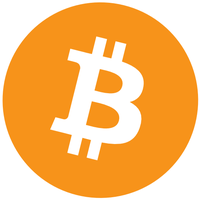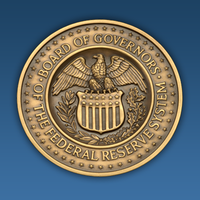The Ripple Effect of Fed Decisions and Global Uncertainty
December 19, 2024, 3:37 pm

Location: United States, Colorado, East Portal Distributed Camping Area
Total raised: $70K
The financial world is a delicate ecosystem. One shift can send ripples across continents. Recently, the U.S. Federal Reserve made waves by signaling a slower pace of interest rate cuts. This decision has not only affected American markets but has also cast a long shadow over Asian stocks and global economic policies.
On December 19, 2024, Asian stocks fell sharply. The MSCI Asia-Pacific index dropped by 1.6%. The tech-heavy Taiwanese market slid 1.2%, while Australian shares plummeted nearly 2%. The Dow Jones Industrial Average had already taken a nosedive, losing over 1,000 points the day before. The mood was grim, like a storm cloud hanging over the financial landscape.
The dollar, meanwhile, stood tall. It hovered near a two-year high, buoyed by the Fed's hawkish stance. The yen, on the other hand, weakened significantly, hitting a one-month low of 155.48 per dollar. The Bank of Japan (BOJ) had decided to keep interest rates steady, a move that many expected. Yet, the implications of this decision were profound. The yen has now declined over 8% against the dollar in 2024, marking a troubling trend for Japan's economy.
Investors are now fixated on BOJ Governor Kazuo Ueda's upcoming comments. They seek clarity on future rate hikes. The market is pricing in a modest increase of 46 basis points by the end of 2025. However, uncertainty looms large. The global economy is at a crossroads, with the U.S. set to undergo significant changes under President-elect Donald Trump.
Trump's impending presidency is already influencing economic policy discussions. The Fed's recent meeting reflected this uncertainty. Officials noted the potential impact of Trump's proposed tariffs and tax cuts on inflation and growth. The Fed's projections now suggest a more cautious approach to rate cuts, with only two quarter-percentage-point reductions anticipated by the end of 2025. This is a stark contrast to earlier expectations.
The Fed's Chair, Jerome Powell, emphasized the need for caution. His remarks sent shockwaves through the markets. Investors recalibrated their expectations, leading to a decline in stock prices. The Fed's decision to cut rates was expected, but the tone of the meeting was more hawkish than anticipated. The message was clear: inflation remains a concern, and the path forward is fraught with uncertainty.
In Japan, the BOJ's decision to maintain ultra-low rates was also a response to global economic pressures. The central bank acknowledged the high level of uncertainty surrounding the economy. A recent survey revealed that nearly three-quarters of Japanese businesses expect Trump's policies to negatively impact their operations. This sentiment reflects a broader anxiety about the future.
As central banks around the world grapple with these uncertainties, the situation in Canada adds another layer of complexity. Canadian Finance Minister Chrystia Freeland resigned after a clash with Prime Minister Justin Trudeau over how to handle potential U.S. tariffs. Freeland's departure underscores the rising tensions and the precarious nature of international trade relations.
The cryptocurrency market, too, felt the tremors of these developments. Bitcoin, once riding high on enthusiasm, experienced a significant drop after Powell stated that the Fed had no plans to stockpile bitcoin. This comment sent the crypto market into a tailspin, leading to a 5% decline in bitcoin's value—the largest drop in over three months.
The interconnectedness of global markets is undeniable. Decisions made in Washington reverberate across the globe. The Fed's cautious approach reflects a broader concern about inflation and economic stability. As the world watches the U.S. transition to a new administration, uncertainty reigns.
In Europe, the mood is similarly cautious. The European Central Bank (ECB) has also hinted at potential rate cuts amid a weakening economic outlook. ECB President Christine Lagarde has emphasized the risks posed by trade tensions with the U.S. under Trump. The global economic landscape is shifting, and central banks are bracing for impact.
As we look ahead, the interplay between U.S. policies and global economic health will be critical. The Fed's decisions will continue to shape market dynamics. Investors must navigate this landscape with care, as the stakes are high.
In conclusion, the recent Fed meeting has set off a chain reaction. Asian stocks are feeling the heat, the dollar is gaining strength, and global economic policies are under scrutiny. The uncertainty surrounding Trump's presidency adds another layer of complexity. As we move forward, the financial world will remain on edge, waiting to see how these developments unfold. The ripple effect is real, and its impact will be felt far and wide.
On December 19, 2024, Asian stocks fell sharply. The MSCI Asia-Pacific index dropped by 1.6%. The tech-heavy Taiwanese market slid 1.2%, while Australian shares plummeted nearly 2%. The Dow Jones Industrial Average had already taken a nosedive, losing over 1,000 points the day before. The mood was grim, like a storm cloud hanging over the financial landscape.
The dollar, meanwhile, stood tall. It hovered near a two-year high, buoyed by the Fed's hawkish stance. The yen, on the other hand, weakened significantly, hitting a one-month low of 155.48 per dollar. The Bank of Japan (BOJ) had decided to keep interest rates steady, a move that many expected. Yet, the implications of this decision were profound. The yen has now declined over 8% against the dollar in 2024, marking a troubling trend for Japan's economy.
Investors are now fixated on BOJ Governor Kazuo Ueda's upcoming comments. They seek clarity on future rate hikes. The market is pricing in a modest increase of 46 basis points by the end of 2025. However, uncertainty looms large. The global economy is at a crossroads, with the U.S. set to undergo significant changes under President-elect Donald Trump.
Trump's impending presidency is already influencing economic policy discussions. The Fed's recent meeting reflected this uncertainty. Officials noted the potential impact of Trump's proposed tariffs and tax cuts on inflation and growth. The Fed's projections now suggest a more cautious approach to rate cuts, with only two quarter-percentage-point reductions anticipated by the end of 2025. This is a stark contrast to earlier expectations.
The Fed's Chair, Jerome Powell, emphasized the need for caution. His remarks sent shockwaves through the markets. Investors recalibrated their expectations, leading to a decline in stock prices. The Fed's decision to cut rates was expected, but the tone of the meeting was more hawkish than anticipated. The message was clear: inflation remains a concern, and the path forward is fraught with uncertainty.
In Japan, the BOJ's decision to maintain ultra-low rates was also a response to global economic pressures. The central bank acknowledged the high level of uncertainty surrounding the economy. A recent survey revealed that nearly three-quarters of Japanese businesses expect Trump's policies to negatively impact their operations. This sentiment reflects a broader anxiety about the future.
As central banks around the world grapple with these uncertainties, the situation in Canada adds another layer of complexity. Canadian Finance Minister Chrystia Freeland resigned after a clash with Prime Minister Justin Trudeau over how to handle potential U.S. tariffs. Freeland's departure underscores the rising tensions and the precarious nature of international trade relations.
The cryptocurrency market, too, felt the tremors of these developments. Bitcoin, once riding high on enthusiasm, experienced a significant drop after Powell stated that the Fed had no plans to stockpile bitcoin. This comment sent the crypto market into a tailspin, leading to a 5% decline in bitcoin's value—the largest drop in over three months.
The interconnectedness of global markets is undeniable. Decisions made in Washington reverberate across the globe. The Fed's cautious approach reflects a broader concern about inflation and economic stability. As the world watches the U.S. transition to a new administration, uncertainty reigns.
In Europe, the mood is similarly cautious. The European Central Bank (ECB) has also hinted at potential rate cuts amid a weakening economic outlook. ECB President Christine Lagarde has emphasized the risks posed by trade tensions with the U.S. under Trump. The global economic landscape is shifting, and central banks are bracing for impact.
As we look ahead, the interplay between U.S. policies and global economic health will be critical. The Fed's decisions will continue to shape market dynamics. Investors must navigate this landscape with care, as the stakes are high.
In conclusion, the recent Fed meeting has set off a chain reaction. Asian stocks are feeling the heat, the dollar is gaining strength, and global economic policies are under scrutiny. The uncertainty surrounding Trump's presidency adds another layer of complexity. As we move forward, the financial world will remain on edge, waiting to see how these developments unfold. The ripple effect is real, and its impact will be felt far and wide.
